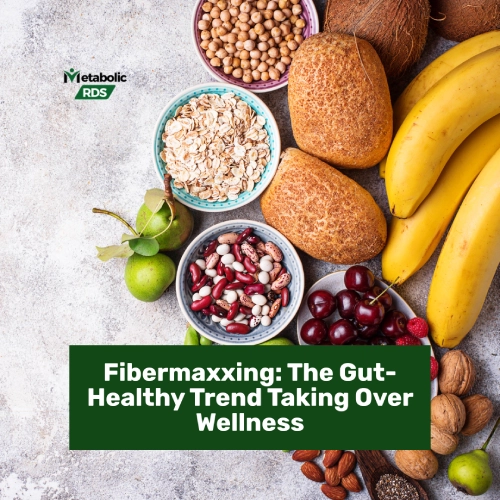By clicking “Accept All Cookies”, you agree to the storing of cookies on your device to enhance site navigation, analyze site usage, and assist in our marketing efforts. View our Privacy Policy for more information.
Curbing Food Cravings
The Cleveland Clinic identifies four major causes of food cravings: food euphoria, stress, lack of sleep, and day-to-day habits.
By
December 31, 2023

Understanding Hunger, Appetite, and Cravings
We've all been there – that unmistakable feeling of hunger, the allure of a hearty appetite, and the sudden, intense pull towards a specific food. While hunger arises when our stomachs are empty and appetite is the general desire to eat, cravings are an entirely different beast.
According to Harvard Health, cravings are described as an "intense urge to eat a certain food—ideally right away" (Harvard Health). These cravings are highly specific, often fixating on a single type of food, like the perennial favorite, chocolate. Unlike hunger, cravings can strike at any moment, even when our bellies are comfortably full.
Unraveling the Causes of Food Cravings
Cravings often lean towards sweet, salty, or fatty foods and are not merely a result of having a "sweet tooth" or a lack of control. Complex physiological factors, deeply embedded in our brains and regulated by hormones and other biochemicals, contribute to these cravings. Surprisingly, nutrient deficiencies are not significant culprits (Harvard Health).
The Cleveland Clinic identifies four major causes of food cravings: food euphoria, stress, lack of sleep, and day-to-day habits. Food euphoria triggers the brain's "feel-good" centers, releasing dopamine and impacting metabolism, stress levels, and appetite. Chronic stress, driven by increased cortisol levels, amplifies cravings, providing temporary relief. Lack of sleep disrupts hormonal balance, intensifying desires for certain foods. Day-to-day habits, like associating snacks with specific emotions or activities, can perpetuate cravings.
In addition to these primary causes, external factors such as environmental cues, hormonal fluctuations, certain medications, and genetic and gut microbiota connections can also play a role.

Smart Strategies to Curb Cravings
While it's essential to honor genuine hunger, there are times when we crave something that doesn't align with our health goals. In such cases, consider these strategies to curb cravings:
- Stay Hydrated: Sometimes, what feels like hunger may be thirst. Keep hydrated to reduce unnecessary cravings.
- Practice Mindfulness: Pause to assess whether your craving is linked to stress, boredom, or genuine hunger. Practice mindful eating to savor food without judgment.
- Balance Meals: Opt for highly nutritious meals with protein and fiber to feel fuller for longer. Regular meals throughout the day prevent excessive hunger.
- Make Nutritious Snacks Convenient: Prepare and package fruits, vegetables, and nutritious dips for easy access. Consider smaller servings or healthier versions of crave-worthy snacks.
- Limit Environmental Cues: Avoid places or situations triggering cravings, such as social media or tempting snack bowls.
- Non-Food-Related Rewards: Find alternative ways to celebrate or cope with feelings, apart from indulging in food.
- Manage Stress: Develop healthier stress-management techniques to lower stress hormones and diminish the power of cravings.
- Prioritize Quality Sleep: Ensure 7-9 hours of sleep each night to maintain hormonal balance and reduce cravings.
Remember, enjoying a small portion of your crave-worthy food is acceptable. Understanding the physiological roots of hunger, appetite, and cravings empowers us to make informed choices aligned with our health goals.
If you're seeking support to manage cravings, implement these strategies, or explore nutritious recipes and meal plans, consider scheduling an appointment with one of your Nutrition Experts. Together, we can navigate your unique journey toward a healthier, more balanced lifestyle.
Book Now
Appointments with Julie I Appointments with Nina

- or -
Join the Private, Facebook Accountability Group
References
- Meule A. (2020). The Psychology of Food Cravings: the Role of Food Deprivation. Current nutrition reports, 9(3), 251–257. https://doi.org/10.1007/s13668-020-00326-0
https://www.ncbi.nlm.nih.gov/pmc/articles/PMC7399671/ - Harvard T. H. Chan School of Public Health. (2021, April). Cravings. The Nutrition Source. https://www.hsph.harvard.edu/nutritionsource/cravings/
- Cleveland Clinic. (2020, December 14). Here’s the deal with your junk food cravings. Health Essentials. https://health.clevelandclinic.org/heres-the-deal-with-your-junk-food-cravings/
- Cleveland Clinic. (2023, January 26). Why you stress eat and how to stop. Health Essentials. https://health.clevelandclinic.org/how-to-stop-stress-eating/
- Harvard T. H. Chan School of Public Health. (n.d.). Sleep. The Nutrition Source. https://www.hsph.harvard.edu/nutritionsource/sleep/
- Cleveland Clinic. (2021, March 25). Three reasons you crave sweet or salty food. Health Essentials. https://health.clevelandclinic.org/3-reasons-you-crave-sweet-or-salty-foods/
- Cleveland Clinic. (2022, August 12). Quick snacks to help kick your sugar cravings. Health Essentials. https://health.clevelandclinic.org/kick-your-sugar-addiction-with-these-5-snacks/
- Harvard T. H. Chan School of Public Health. (2020, November). Mindful eating. The Nutrition Source. https://www.hsph.harvard.edu/nutritionsource/mindful-eating/
- Harris, N. M., Lindeman, R. W., Bah, C. S. F., Gerhard, D., & Hoermann, S. (2023). Eliciting real cravings with virtual food: Using immersive technologies to explore the effects of food stimuli in virtual reality. Frontiers in psychology, 14, 956585. https://doi.org/10.3389/fpsyg.2023.956585
https://www.ncbi.nlm.nih.gov/pmc/articles/PMC10149689/





